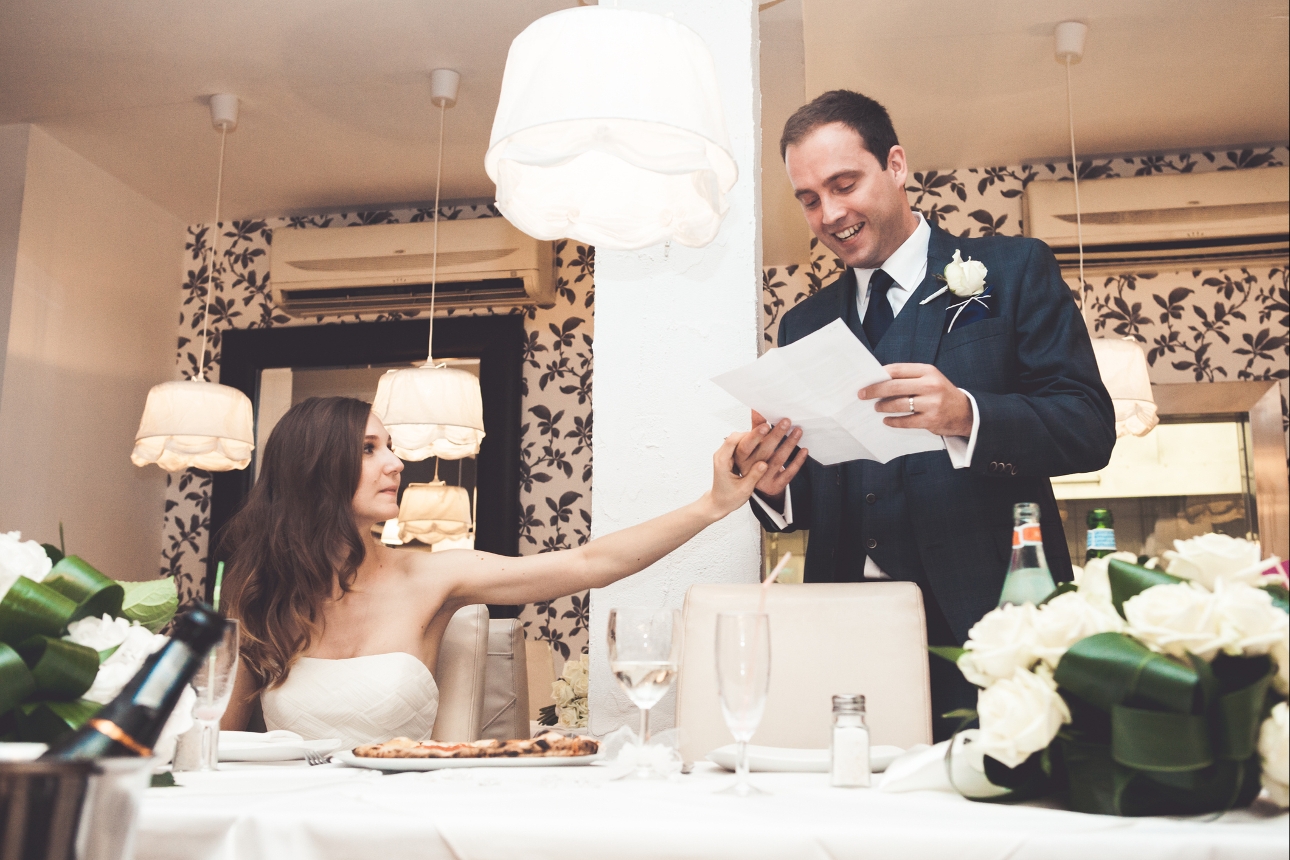Fever-Tree's new cocktail mixers: the ultimate hosting hack
With Christmas and New Year being the key season for popping the question, there's double...

Matthew Shaw, a leading wedding and events planner and founder of sauveur. - a superb events and creative studio - reveals his top tips to help you plan your big-day speech.
Stick to an angle
Speeches can sprawl quite easily when you're trying to cover so much and this makes them difficult to follow. When you first start planning your speech it's definitely helpful to throw lots of ideas around but then try to focus on an overall theme or approach. This could be a personality trait, great jokes, or a more heartfelt approach, but it will help you, and the guests, if there is a clear angle to follow. In turn, this will help your guests follow along and you will be gifted with a better response from the room.
When it comes to content, remember to keep it clean and universal. By all means poke fun at your subject with a glint in your eye, but consider who may be present and keep the shaming stories for another time. Similarly, you should consider what your audience can relate to too. No one wants to sit through a five minute private joke they don't understand!
Keep it short, Keep it sweet!
A tale as old as time but I really cannot stress this enough! It is very difficult to distill a friendship or relationship into a couple of minutes but you will be thanked for this, I promise. I recommend three to five minutes and no more than eight. The groom (or bride!) can allow themselves longer. A clear, tight, structure will help you deliver a brilliant speech and leave everyone wanting more. This is equally important on the day itself; do not go off script and meander through your thoughts. If you lose your place you can pause and refer to your notes, but do not freestyle and make it up as you go along. I have never seen a long wedding speech that has been well received...
Listen and respond to other speeches
This can be a slightly harder tip to follow, but I really do recommend it as it will make your speech seem authentic and give it place amongst the celebrations. It will, of course, depend on when you are speaking during the day, but I advise allowing a short section for this in your notes. You should then take five minutes during the occasion to think through the celebrations so far and what you could add in. This could be something special said during the ceremony, a funny moment that has happened, or a detail you've picked up on. This really ties everyone's experience together as it's a point everyone in your audience can relate to.
Notes! Not a script
As much as possible, I suggest rehearsing enough so that you know the overall structure and points off by heart and then using notes as a guide on the day. Your speech will feel much more natural for this and it will also help you look up and out across the room. Depending on how comfortable you are, you can then take the speech down to key points and highlights and practise using those which can then be printed out for the wedding day. For our weddings we often stick these into a spare order of service so they look smart and are also easier to hold and turn the page. This will also help you with your eye contact. It will help your speech feel more personal if you make eye contact around the room instead of with the floor in front of you. Whatever works for you but whatever you do, don't read off your phone!
Best Speech Ever (B.S.E)
This is my acronym for putting the finishing touches on an excellent speech. Body language, speed, and energy. Once you've written your speech, the crucial next step is to rehearse it so you are comfortable with your material and delivery.